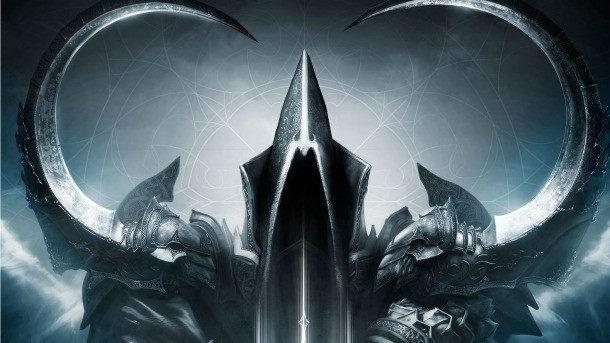Editorial: The Difference Between Story And Fiction

I’m a big fan of rich fictional backdrops to a video game. Even when those features aren’t necessarily central to the potential of the action or gameplay, I find myself hungering to know more about the world behind the game – the role-playing gamer and fantasy novel-reader in me enjoys a big action scene more if I get some narrative context ahead of time. However, I’m often surprised by the vehemently negative reactions many gamers have to the fiction of any given game. I’m sure some of that difference of opinion is a matter of personal taste, but I also think some folks miss out on the joy of enjoying the setting, history, and depth of a game’s world simply because the storytelling set in that world isn’t especially strong.
That’s too bad, because storytelling is a separate (if linked) discipline to the art of crafting a speculative fiction universe and making it compelling.
Whether we think about it or not, we’re trained from childhood to recognize good storytelling. Compelling characters tap into familiar archetypes while offering interesting new twists, and we’re drawn to their struggles, with games in particular, as vicarious participants. Storytelling also demands thoughtful dialogue or pantomime, in which plot points are cleverly paced and events are linked in a meaningful way. Storytelling in games is a dramatically different art than writing for other mediums, like books or movies. A game storyteller must constantly balance the need for narrative complexity and progression against a player’s desire to participate. “When I am enjoying my writing, I have to stop myself because I realize I haven’t actually given the player anything to do for the last five minutes,” says The Walking Dead game writer Gary Whitta in a recent Game Informer interview. “Sometimes [writers] have to go back and realize that they are kind of serving multiple masters at once. They are serving a narrative master who wants to tell a good story, but they are also serving a gameplay master. The game is a storytelling experience, it’s a gameplay experience, and it’s interactive in some forms and linear in others. The storyline pacing and gameplay pacing have to exist in harmony.”
In contrast, fiction and world-building are often tasks undertaken by those same writers, but the goals are different. Unlike telling a story, establishing a meaningful setting and tone to the world can go a long way to immersing a player in the experience, even when traditional storytelling isn’t possible. Where the emotion and interplay of characters in a story is something we’re constantly attuned to, the more subtle presentation and introduction of a game’s fiction can easily fly under the radar. Establishing a powerful fiction involves asking different questions than we ask about a story. As games are frequently set in a world different from our own, what makes this universe distinct from our own? How does the established fiction contribute to the gameplay? And how are those concepts introduced to a gamer in a memorable and meaningful way? Answering these questions can make for a memorable fiction, even when the story set there might lack substance.
Many games excel at this type of world-building, even though the stories set in those worlds are, sometimes by necessity, only a minor component of the overall experience. I recently hopped back in to enjoy Diablo III’s expansion, and rediscovered the great depth of its fiction, even while simultaneously acknowledging the absence of meaningful storytelling. Diablo III is filled with a brilliant artistic aesthetic and music that draws me into its dark and gothic fantasy. The places I visit have history and a sense of time and place, and the monsters I fight and even weapons I wield are perfectly attuned to the broader narrative landscape. Even though the newly introduced storyline is barebones and limited, I still find myself loving my time once again enmeshed in the world of Diablo.
To find an example of fiction taking priority over story that encompasses an entire genre, look no further than MMOs. A release like The Elder Scrolls Online is the most recent in an endless string of MMOs that paint a compelling universe, but rarely crest above boiler plate fantasy or science fiction in their storytelling – and that’s just fine with me. MMOs thrive on the sense of progression and immersion in the world; complex narrative rarely fits with the scattershot approach many players take to exploring an MMO world.
We’re in the midst of a fascinating period of growth in game narrative, in which developers are exploring new ways to present settings and the stories set in those worlds. Recently, Titanfall helped illustrate the challenge facing developers in an ever-changing landscape. Titanfall’s campaign multiplayer attempts to present a story in the midst of frantic multiplayer battles. While Titanfall succeeds on many fronts, Respawn’s attempts to present story in this way met with mixed success; it’s hard to pay attention to character dialogue while trying to lock in that perfect sniper shot on a player across the map. Even so, I’d argue that the team did a great job creating a meaningful sci-fi setting and universe, even when its story doesn’t always hit home.
Fiction-building and story are not independent from one another; each relies on the other, and many games excel at both. Two of the best games of 2013 were BioShock Infinite and The Last of Us. Both crafted intriguing fictions, and populated those settings with rich and layered characters, smartly paced plotlines, and poignant conclusions. However, not every game has the same goals. Some of my favorite universes to visit in games don’t present the most compelling structured narrative, but it doesn’t make me love my trip there any less.

Get the Game Informer Print Edition!
Explore your favorite games in premium print format, delivered to your door.
- 10 issues per year
- Only $4.80 per issue
- Full digital magazine archive access
- Since 1991









